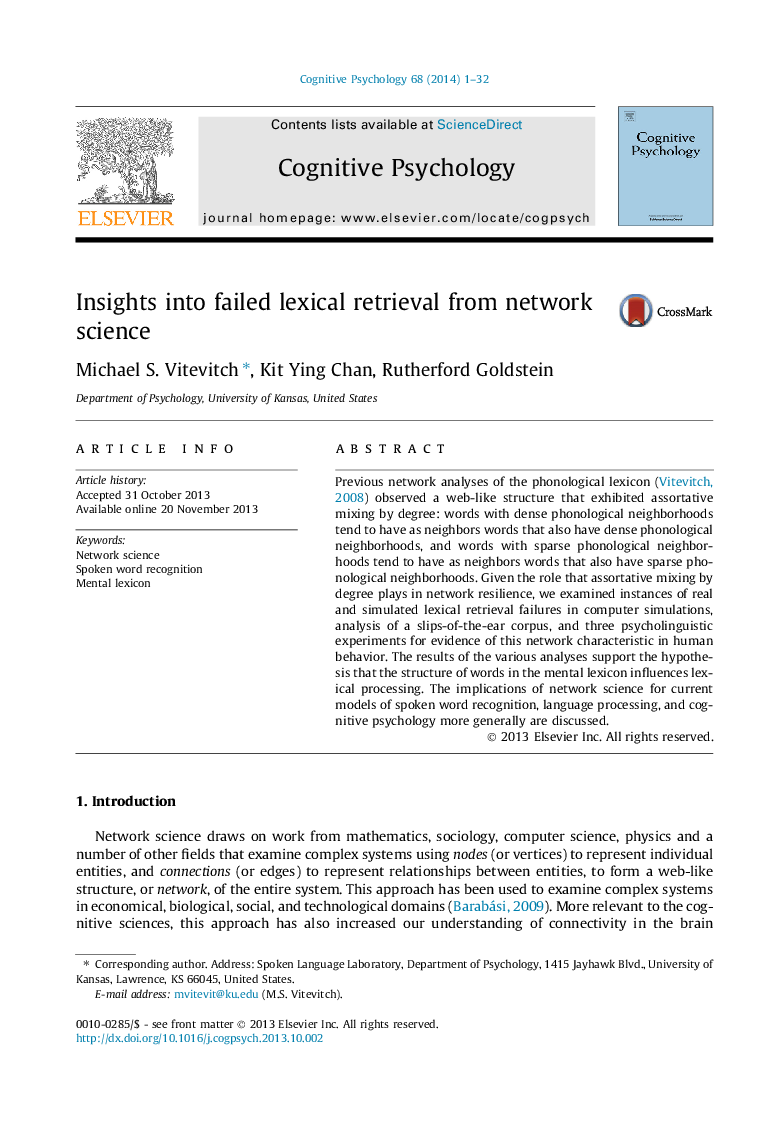| Article ID | Journal | Published Year | Pages | File Type |
|---|---|---|---|---|
| 916875 | Cognitive Psychology | 2014 | 32 Pages |
•Network science provides a wide-range of statistical tools to analyze complex cognitive systems.•Previous studies have used network science to examine structure at the micro-level of the mental lexicon.•We used network science to examine the macro-level structure of the mental lexicon via assortative mixing by degree.•Evidence that this structure influences processing was found in psycholinguistics tasks, error analyses, and simulations.
Previous network analyses of the phonological lexicon (Vitevitch, 2008) observed a web-like structure that exhibited assortative mixing by degree: words with dense phonological neighborhoods tend to have as neighbors words that also have dense phonological neighborhoods, and words with sparse phonological neighborhoods tend to have as neighbors words that also have sparse phonological neighborhoods. Given the role that assortative mixing by degree plays in network resilience, we examined instances of real and simulated lexical retrieval failures in computer simulations, analysis of a slips-of-the-ear corpus, and three psycholinguistic experiments for evidence of this network characteristic in human behavior. The results of the various analyses support the hypothesis that the structure of words in the mental lexicon influences lexical processing. The implications of network science for current models of spoken word recognition, language processing, and cognitive psychology more generally are discussed.
